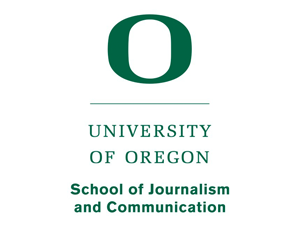
This is another installment of an ELGL original content series titled “Josh’s Job Search 2.0” by Josh Halladay. Halladay is sharing career advice that he is receiving in informational interviews. For more career resources, attend The Employment Lowdown with Jessica Williams, Mac’s List and Prichard Communications on November 13.
Vitals
Mark Jockers

Government & Public Affairs Manager, Clean Water Services
Education: University of Oregon, B.A., Journalism and Pacific Lutheran University, Communications
Connect: LinkedIn
Connect with Clean Water Services: Twitter, Facebook, and the World Wide Web
Work at Clean Water Services: Jobs
Background Check on Mark
 Mark Jockers is the government and public affairs manager for Clean Water Services in Hillsboro, Ore. He is responsible for managing Clean Water Services’ government relations, legislative affairs, communications, marketing, media relations and public-involvement strategies. Mark joined Clean Water Services in 1991 and has managed the district’s public-affairs program since 1995.
Mark Jockers is the government and public affairs manager for Clean Water Services in Hillsboro, Ore. He is responsible for managing Clean Water Services’ government relations, legislative affairs, communications, marketing, media relations and public-involvement strategies. Mark joined Clean Water Services in 1991 and has managed the district’s public-affairs program since 1995.
Mark is chairman of the WEF’s Public Communication and Outreach Committee. He also serves on the Board of the Oregon Association of Clean Water Agencies, and is a past president of The Wetlands Conservancy.
Mark holds a B.A. in journalism from the University of Oregon. Prior to joining Clean Water Services, he worked as a science editor and reporter with Scholastic Publishing, an assistant editor with William Morrow Publishing, and as a freelance researcher and writer specializing in science and environmental issues.
The Interview
 Forty informational interviews. That’s how many Mark Jockers conducted before he landed a position at the Unified Sewerage Agency (now Clean Water Services) 20 years ago. He has been with the organization ever since. Mark, a graduate from the University of Oregon’s School of Journalism, found a niche in a public sector agency that relies primarily on engineers and tech people. Today, Mark is Government and Public Affairs Manager, managing his own team and has hiring responsibilities. I took the opportunity to ask him about his perspective. He gave me a mini-game plan.
Forty informational interviews. That’s how many Mark Jockers conducted before he landed a position at the Unified Sewerage Agency (now Clean Water Services) 20 years ago. He has been with the organization ever since. Mark, a graduate from the University of Oregon’s School of Journalism, found a niche in a public sector agency that relies primarily on engineers and tech people. Today, Mark is Government and Public Affairs Manager, managing his own team and has hiring responsibilities. I took the opportunity to ask him about his perspective. He gave me a mini-game plan.
Clearly Mark believes in the value of informational interviews, as he conducted 40 of them when he was shortly removed from higher education. He offered a funny story about the amount of effort he put into interviewing with Len Bernstein in the early 1990s. The moral of it: persistence pays dividends, especially when it comes to getting the attention of busy professionals. He spoke of how his niece recently conducted a number of informational interviews, where she learned that she needed more experience abroad to break into her desired field. She is now in the Peace Corps. He also gave me the name of someone who used informational interviews to find the job she desired. Ultimately, informational interviews can help someone get in the door for an interview that has a job at the end of it and getting in the door is the first step to getting hired (Of note: Informational interviews are valuable for more than just hiring purposes).
 Before a job interview, one needs to spend time doing research. Knowing the current issues that face a person are good, but one can go further by calling into the agency and talk to an employee to get to know the interviewer’s priorities and personality. This can go a long way to having a good vibe with the interviewer and getting hired.
Before a job interview, one needs to spend time doing research. Knowing the current issues that face a person are good, but one can go further by calling into the agency and talk to an employee to get to know the interviewer’s priorities and personality. This can go a long way to having a good vibe with the interviewer and getting hired.
Mark says that generally, a number of the top candidates could do the job reasonably. To narrow down the list, he looks for complimentary skills and a candidate who will fit with the team. Getting this information serves as another reason to call the organization before an interview.
 Lastly, once a person is hired, the skills Mark hopes his new employees will demonstrate are ‘motivation, innovation, and smarts.’ While every manager has different priorities, these three are common positive traits.
Lastly, once a person is hired, the skills Mark hopes his new employees will demonstrate are ‘motivation, innovation, and smarts.’ While every manager has different priorities, these three are common positive traits.
The tips Mark gave were simple. It seems as though the plan to getting hired at an agency one would like to work for is simple (when they have an opening is another matter). Once one has the opportunity and the information, all that is left to do it follow through.
Supplemental Reading
- Clean Water Services launches ‘Clean Water Grow’ fertilizer
- Clean Water Services | – Washington County Public Affairs Forum
- Watch Celebrating 40 Years of Clean Water
- Clean Water Services, Ostara to unveil $4.75M water-treatment plant
- SKATE PARK SEARCH UNCOVERS PLANS FOR SEWAGE PONDS
- New $8.9 million office addition ready for Clean Water Services
